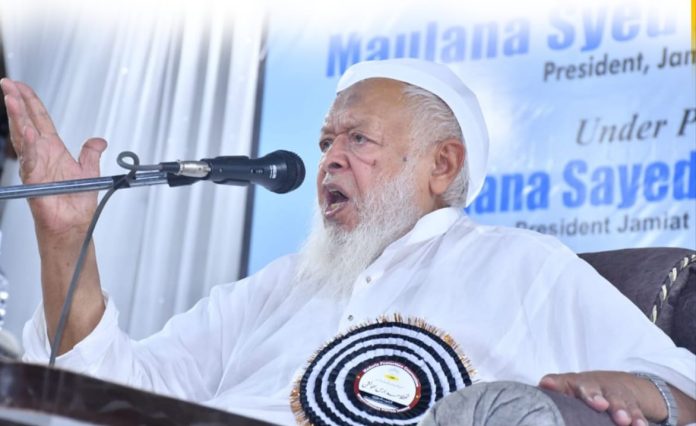New Delhi: The executive committee of Jamiat Ulema Hind (JUH), chaired by its president Maulana Arshad Madani, held a crucial meeting at its headquarters in New Delhi, voicing deep concern over what it described as “systematic discrimination” against Muslims in India, particularly in Assam.
In his address, Maulana Arshad Madani said the situation in the country has become more alarming than ever before, with Muslims facing an “unending chain of problems” and being deliberately targeted through communal narratives. “The bulldozers in Assam are not demolishing Muslim colonies; they are bulldozing the Constitution itself,” he remarked. He accused the government of running the country on divisive Hindu-Muslim lines, warning that “a nation cannot be governed through communal polarization.”
The JUH highlighted that over 50,000 Muslim families have been displaced in Assam in recent months under eviction drives. Madani alleged that the Chief Minister’s open remarks about targeting “Miya Muslims” expose the communal motivation behind these actions. He questioned whether India still has functional courts, pointing out that despite Supreme Court orders halting demolitions, new eviction campaigns were launched.
Muslims are being treated as second-class citizens. If colonies were illegal, why did earlier governments provide civic facilities there?” Madani asked, condemning the move to also remove such residents from the electoral rolls. He said JUH would soon file a fresh petition in the Supreme Court against these evictions.
The committee reiterated that its struggle is not against any community but against government policies that undermine constitutional guarantees. “It is the duty of the state to ensure security and equal rights to all citizens,” Madani stated, stressing JUH’s reliance on legal battles over street confrontations.
The meeting also condemned Israel’s ongoing assault on Gaza, describing it as “a genocide of nearly one lakh people,” supported by the United States. The JUH demanded India break military and strategic ties with Israel and called for international pressure to ensure a ceasefire, humanitarian access, and the creation of a free Palestinian state.
The JUH extended solidarity to oppressed Palestinians and urged Indian citizens and organizations to raise their voices against both domestic and global injustices rooted in communal hatred and aggression.




